2017, Cinncinnati, Ohio, USA
Tori Lyon and Veronica France developed a project called Turning Trash into Treasure, focused on improving their watershed (the Mill Creek) by reducing the amount of plastic bags that end up as litter. The project consisted of two parts, phase one and phase two. They began their project by educating their school community through daily announcements informing classmates on the importance of keeping their local watershed clean and the detrimental effects of plastic bags on 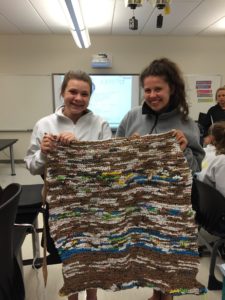 the environment. After kick-staring the education portion of their project, they started working on implementing phase one.
the environment. After kick-staring the education portion of their project, they started working on implementing phase one.
Phase one of the project consisted of collecting plastic bags from their school community and distributing reusable cloth bags to the students. Tori and Veronica set up a station in a busy hallway of the school where students could turn in their plastic bags. For every 25 plastic bags a student turned in, they received a custom made, reusable cloth bag. Inside each cloth bag was an informational flyer containing more facts about the Mill Creek watershed and the detrimental effects of plastic bags as litter. In order to keep track of how many bags were brought in, each student who donated plastic bags filled out a slip with their name, grade and number of bags brought in. This provided Tori and Veronica with an easy way to account for the bags donated. After they held a week-long bag collection event and distribution at school, they transitioned into phase two of the project in which they created sleeping mats out of the collected plastic bags.
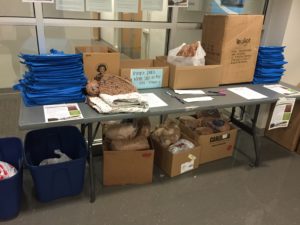 Phase two started with a bag prepping party at which everyone folded, cut, and looped the plastic bags into balls of “yarn”. This ball of plastic yarn was then crocheted into sleeping mats that were donated to the homeless. They conducted significant amounts of research on how to properly crochet plastic sleeping mats, as well as the benefits of sleeping mats for those who are homeless. The mat weaving process was very time consuming and involved intricate work, so the students sought out the help of their school community for completing this part of our project.
Phase two started with a bag prepping party at which everyone folded, cut, and looped the plastic bags into balls of “yarn”. This ball of plastic yarn was then crocheted into sleeping mats that were donated to the homeless. They conducted significant amounts of research on how to properly crochet plastic sleeping mats, as well as the benefits of sleeping mats for those who are homeless. The mat weaving process was very time consuming and involved intricate work, so the students sought out the help of their school community for completing this part of our project.
They had an overwhelming response to their project! Tori and Veronica were hoping to collect about 2,000 plastic bags, but received over 17,000 plastic bags. Since this was such a great number of bags, they are planning on donating the extra bags to Matthew 25 Ministries where groups of volunteers work to complete similar projects. They will continue to make mats until the end of the year.
Their project reached a large scope, and they were able to help improve the condition of our watershed.
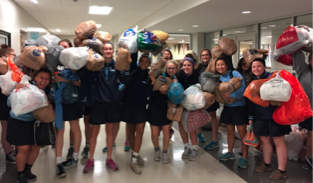
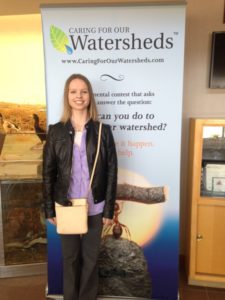
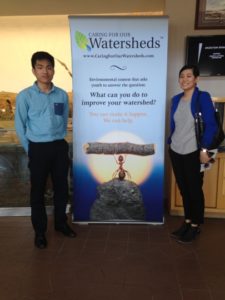
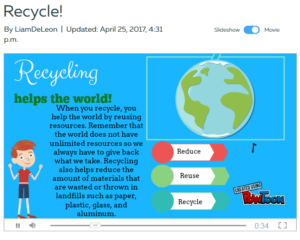
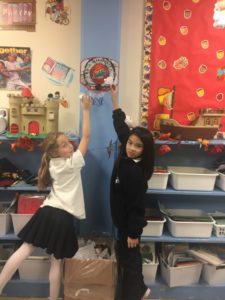

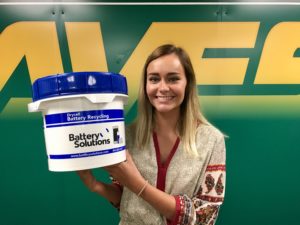 school and is always having to switch out old batteries in game systems. Through this experience she became aware of how many batteries were being tossed out. She started becoming more concerned about the problem as she researched the chemicals inside every single battery and began thinking about the impact these batteries have on our environment. As a senior at Sycamore High School she has been involved in Environmental Club, AP Environmental class, and engineering. With her background knowledge and interest she became motivated to help solve this problem.
school and is always having to switch out old batteries in game systems. Through this experience she became aware of how many batteries were being tossed out. She started becoming more concerned about the problem as she researched the chemicals inside every single battery and began thinking about the impact these batteries have on our environment. As a senior at Sycamore High School she has been involved in Environmental Club, AP Environmental class, and engineering. With her background knowledge and interest she became motivated to help solve this problem.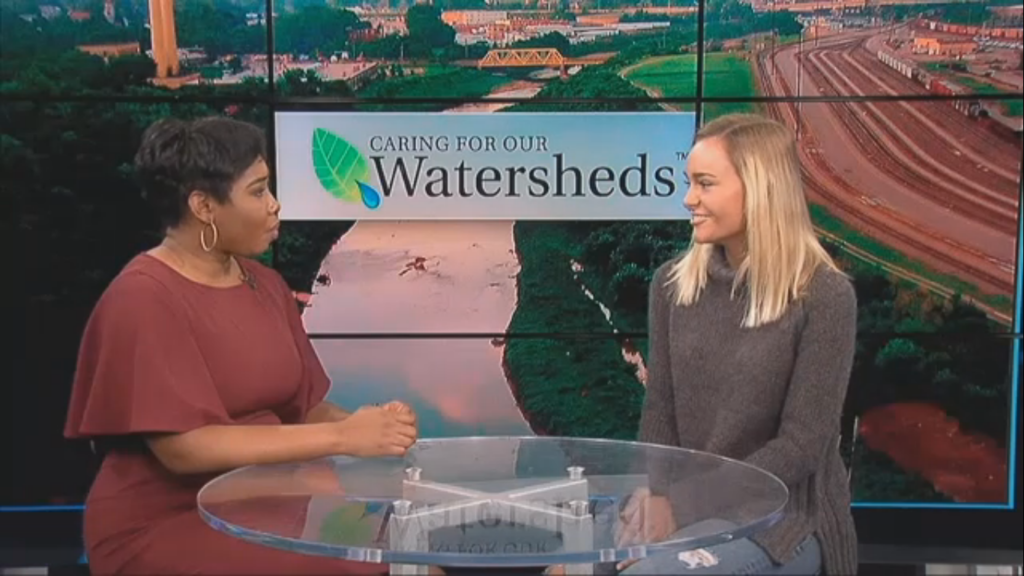 project, Lexi put in place a battery-recycling program in all the schools within the Sycamore School District. These pails are located in the front offices of all schools and have begun overflowing with all the donations from community residents. She hopes recycling batteries becomes just as routine as recycling paper and plastic. With this permanent project Lexi hopes to educate her community on the simple actions they can take to make a big difference.
project, Lexi put in place a battery-recycling program in all the schools within the Sycamore School District. These pails are located in the front offices of all schools and have begun overflowing with all the donations from community residents. She hopes recycling batteries becomes just as routine as recycling paper and plastic. With this permanent project Lexi hopes to educate her community on the simple actions they can take to make a big difference. the environment. After kick-staring the education portion of their project, they started working on implementing phase one.
the environment. After kick-staring the education portion of their project, they started working on implementing phase one. Phase two started with a bag prepping party at which everyone folded, cut, and looped the plastic bags into balls of “yarn”. This ball of plastic yarn was then crocheted into sleeping mats that were donated to the homeless. They conducted significant amounts of research on how to properly crochet plastic sleeping mats, as well as the benefits of sleeping mats for those who are homeless. The mat weaving process was very time consuming and involved intricate work, so the students sought out the help of their school community for completing this part of our project.
Phase two started with a bag prepping party at which everyone folded, cut, and looped the plastic bags into balls of “yarn”. This ball of plastic yarn was then crocheted into sleeping mats that were donated to the homeless. They conducted significant amounts of research on how to properly crochet plastic sleeping mats, as well as the benefits of sleeping mats for those who are homeless. The mat weaving process was very time consuming and involved intricate work, so the students sought out the help of their school community for completing this part of our project.
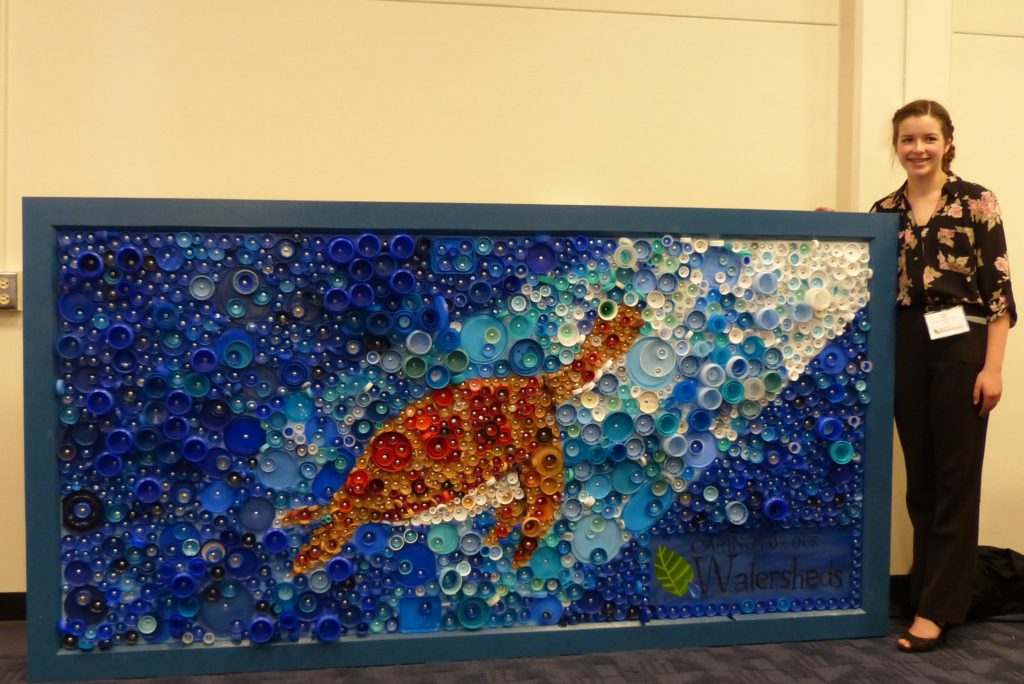
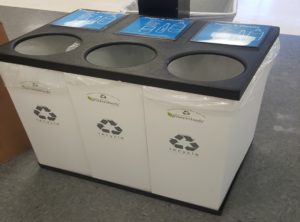
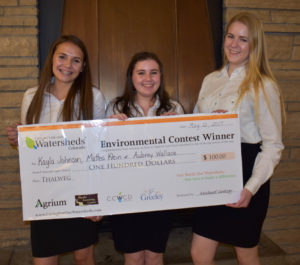 throughout the high traffic areas of the school. The materials from the new recycling bins are being collected by Waste Management. The company already has a recycling contract with the school, so it did not increase the overall expenditure for the district.
throughout the high traffic areas of the school. The materials from the new recycling bins are being collected by Waste Management. The company already has a recycling contract with the school, so it did not increase the overall expenditure for the district.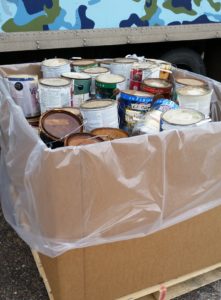 2017, Milliken, Colorado, USA
2017, Milliken, Colorado, USA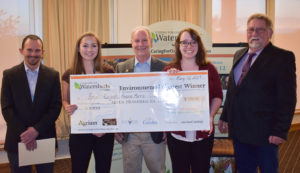 1300 pounds of paint, stain and finishes. The water-based paint is remixed to create 16 new colors and the non-paint items were sent to the hazardous waste disposal site
1300 pounds of paint, stain and finishes. The water-based paint is remixed to create 16 new colors and the non-paint items were sent to the hazardous waste disposal site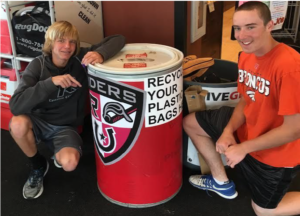
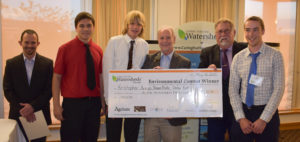 grocery bags in the community while decreasing plastic in the local landfill.
grocery bags in the community while decreasing plastic in the local landfill.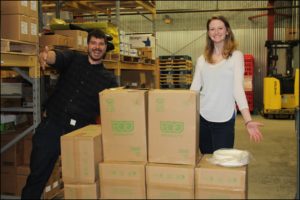
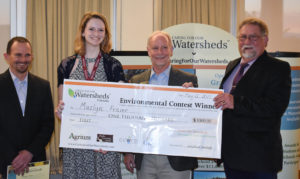 plate waste twice a week. The school has been using these plates since April of 2017, and plan on continuing this practice. Mazlyn has contacted the other schools in the district with the goal of implementing this program throughout Greeley.
plate waste twice a week. The school has been using these plates since April of 2017, and plan on continuing this practice. Mazlyn has contacted the other schools in the district with the goal of implementing this program throughout Greeley.